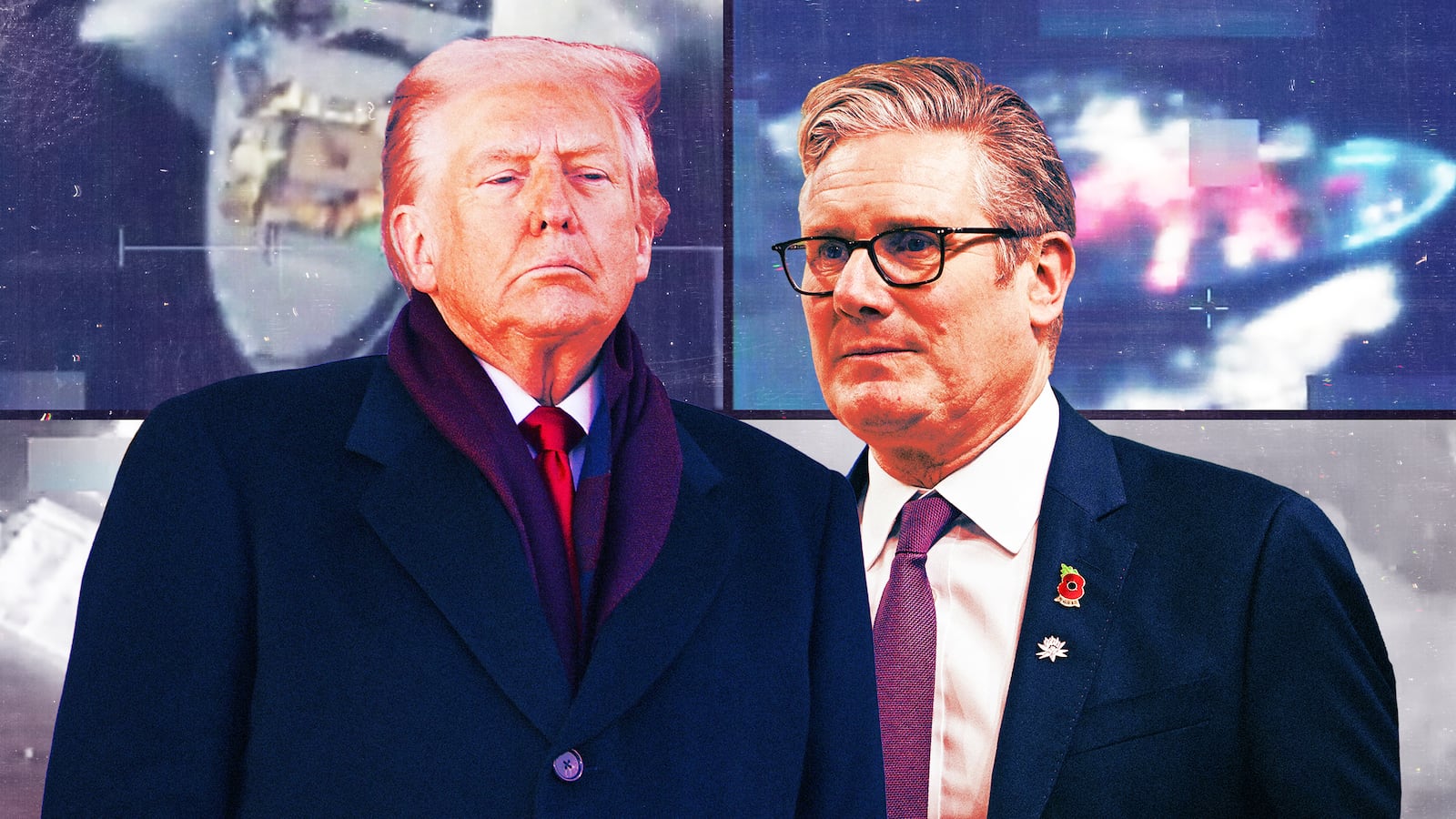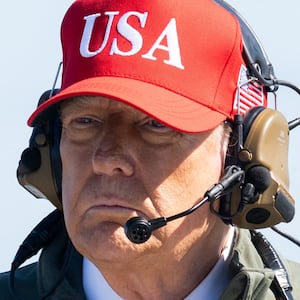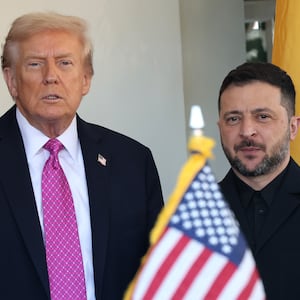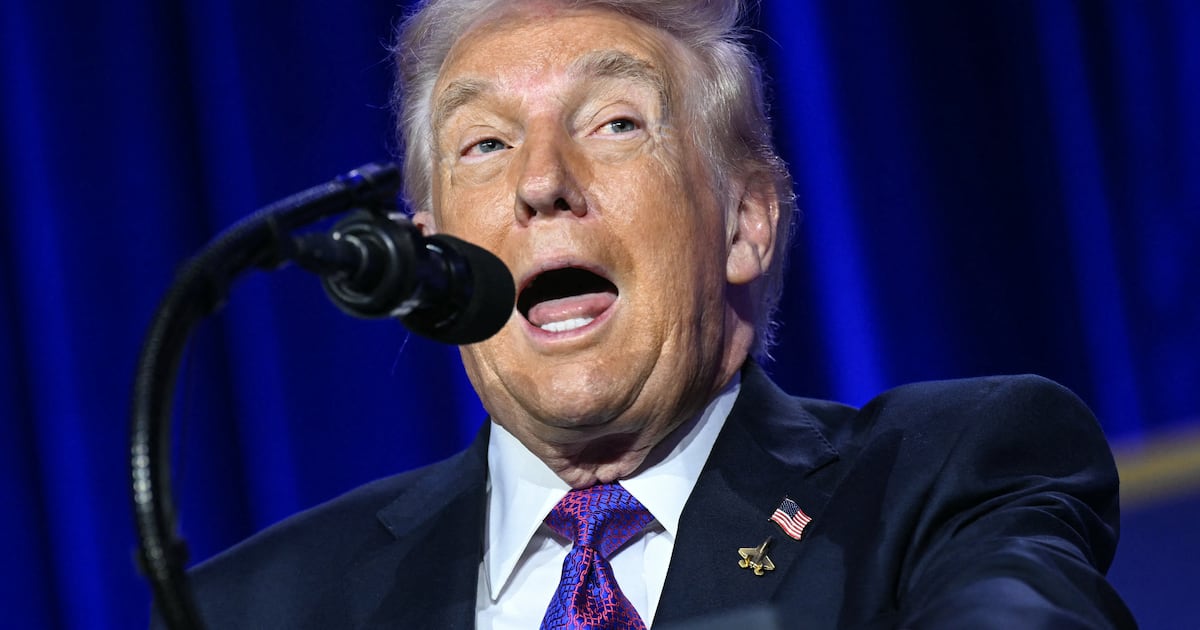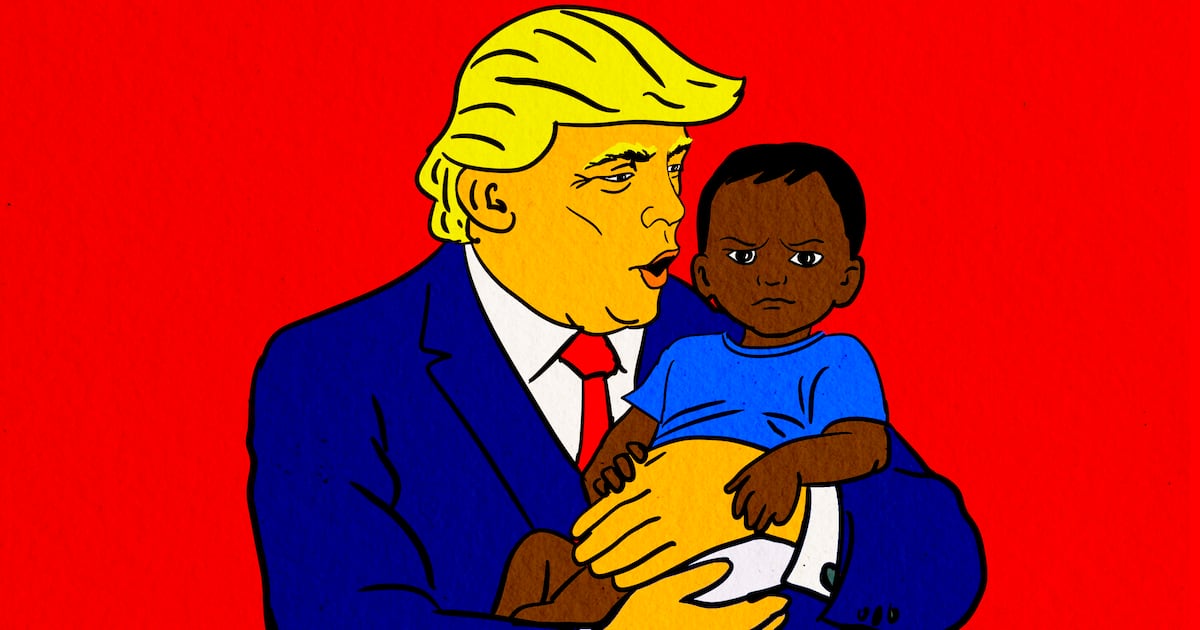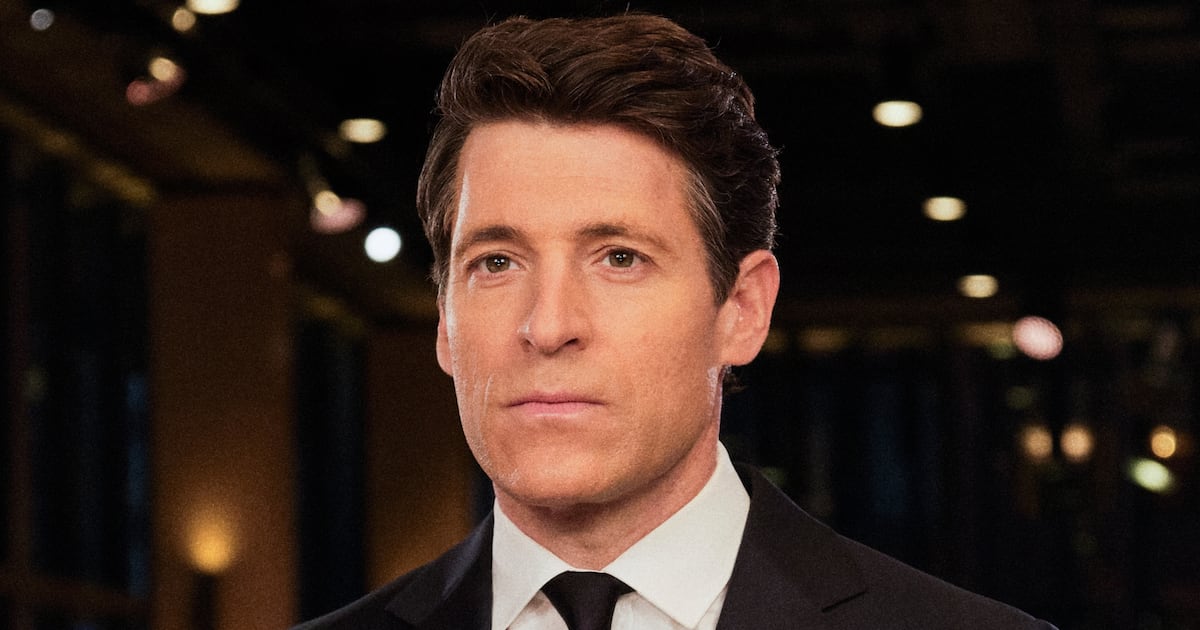America’s closest military ally has stopped sharing intelligence with the U.S. about suspected drug trafficking boats in the Caribbean because it believes President Donald Trump’s lethal strikes are illegal.
Amid growing international skepticism about the President’s campaign against so-called “narco terrorists,” the UK is reportedly no longer sharing information with the U.S. because it does not want to be complicit in the attacks.
The move, first reported by CNN, marks a significant shift for the UK, which controls a number of territories in the Caribbean and has traditionally helped the U.S. Coast Guard locate and intercept vessels suspected of carrying drugs.

But according to sources familiar with the matter, Britain paused intelligence about a month ago because officials believe the lethal strikes, which have so far killed 76 people, violate international law.
Asked about the issue on Tuesday, a Pentagon official told the Daily Beast: “We don’t discuss intelligence matters.”
But the news comes amid growing alarm about the strikes, none of which have resulted in the Trump administration providing evidence to substantiate its allegations of drug trafficking.
The latest two attacks, announced on social media by Defense Secretary Pete Hegseth, took place in the Eastern Pacific on Sunday, killing six people and bringing the total number of known strikes so far to 19.
The administration insists the strikes are lawful because President Trump has “determined” that the United States is in a formal armed conflict with drug cartels.
But legal experts, global leaders and even some Republicans have questioned the legality of bombing suspected civilian cartel members without any attempt to intercept or capture them first.
“We can’t just kill indiscriminately because we are not at war. It’s summary execution!” Kentucky Senator Rand Paul, one of the few Republicans willing to speak out against Trump, warned last month.
The intelligence shared by the UK was typically sent to Joint Interagency Task Force South, which is stationed in Florida to counter transnational criminal organizations.
The task force works in partnership with military and law enforcement units from various Central and South American nations, Canada, the United Kingdom and the Netherlands.
Asked about the reported pause on intelligence, a UK government spokesperson told The Daily Beast: “It is our longstanding policy to not comment on intelligence matters.”
“The U.S. is our closest ally on security and intelligence. We continue to work together to uphold global peace and security, defend freedom of navigation, and respond to emerging threats,” the spokesperson said.
Retired Admiral James Stavridis told CNN that any pause by the UK on intelligence sharing would be a “big, big deal.”
“Tactically, it means you’re not going to get that intelligence that the United Kingdom gathers all around the Caribbean,” he said.
“They still own the British Islands, the Cayman Islands, Montserrat. They’ve got a lot of territories, they conduct a lot of operations there. So that’s a real tactical shortfall.”
However, Sean McFate, a senior fellow at the Atlantic Council, said the move was more “symbolic” and “a shot across the bows,” pointing out that the two allies were both part of the Five Eyes intelligence alliance and had other ways to share information.
But Britain is not the only country to raise concerns. In September, Colombian President Gustav Petro called for a criminal investigation by the United Nations, likening Trump’s actions to murder.

Tensions escalated last month when Petro claimed that one man who was killed in a boat strike that took place in mid-September was “lifelong fisherman” Alejandro Carranza, whose boat had experienced damage and was adrift.
Trump responded online by declaring Petro, who rose to prominence as a Colombian Senator by exposing links between right-wing paramilitary groups involved in drug trafficking and corrupt politicians, was an “illegal drug leader.”
He also threatened tariff hikes on the country - something that has not yet happened.
The U.S. began striking alleged drug boats on September 2, when the first operation killed 11 people, who Trump also claimed were from the Venezuelan criminal gang Tren de Aragua.
Since then, the strikes have expanded into a broader pressure campaign against Venezuelan President Nicolas Maduro, whom the Trump Administration considers illegitimate.
Trump has denied he is seeking regime change in Venezuela, but has ramped up threats against the country’s president and ordered a massive naval buildup off Venezuela’s coast.
“He doesn’t wanna f--- around” with America,” the president said last month in a profanity-laced threat to Maduro.
The Daily Beast has reached out to the White House and the British Embassy in Washington. They are yet to comment.

